Hebatallah A. Mohamed
Tag-Aware Document Representation for Research Paper Recommendation
Sep 08, 2022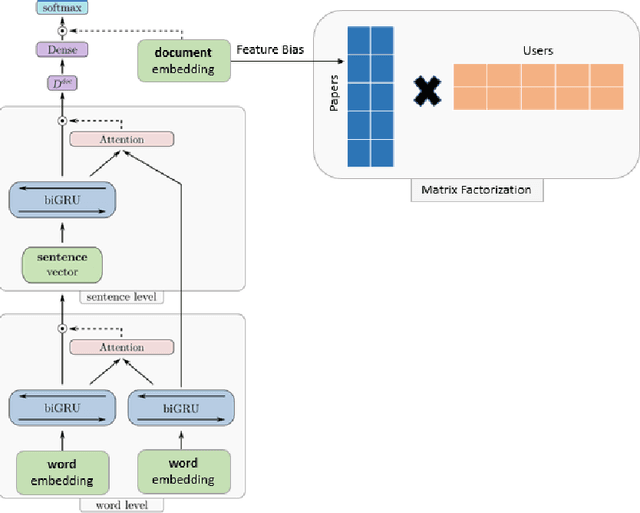

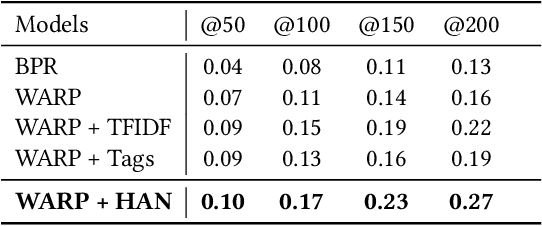
Abstract:Finding online research papers relevant to one's interests is very challenging due to the increasing number of publications. Therefore, personalized research paper recommendation has become a significant and timely research topic. Collaborative filtering is a successful recommendation approach, which exploits the ratings given to items by users as a source of information for learning to make accurate recommendations. However, the ratings are often very sparse as in the research paper domain, due to the huge number of publications growing every year. Therefore, more attention has been drawn to hybrid methods that consider both ratings and content information. Nevertheless, most of the hybrid recommendation approaches that are based on text embedding have utilized bag-of-words techniques, which ignore word order and semantic meaning. In this paper, we propose a hybrid approach that leverages deep semantic representation of research papers based on social tags assigned by users. The experimental evaluation is performed on CiteULike, a real and publicly available dataset. The obtained findings show that the proposed model is effective in recommending research papers even when the rating data is very sparse.
Geolocation of Cultural Heritage using Multi-View Knowledge Graph Embedding
Sep 08, 2022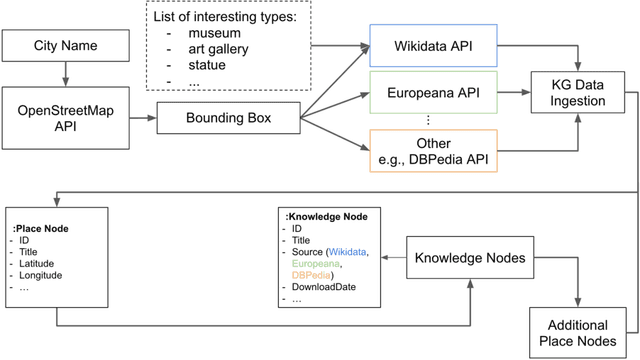

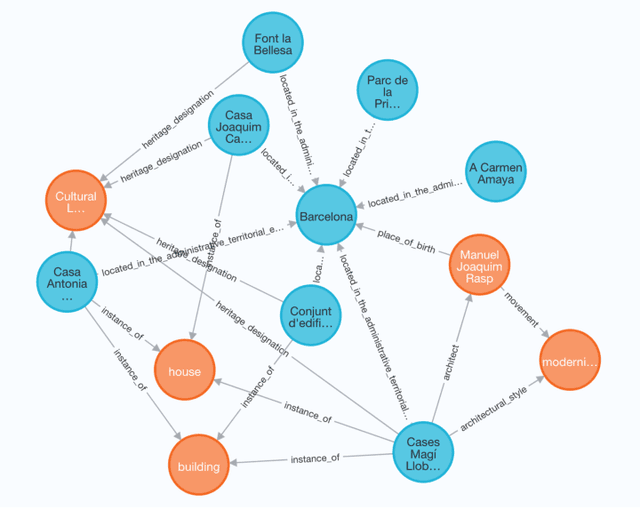
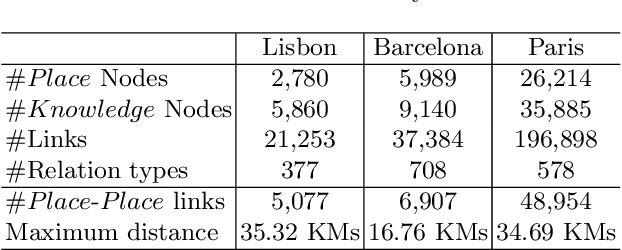
Abstract:Knowledge Graphs (KGs) have proven to be a reliable way of structuring data. They can provide a rich source of contextual information about cultural heritage collections. However, cultural heritage KGs are far from being complete. They are often missing important attributes such as geographical location, especially for sculptures and mobile or indoor entities such as paintings. In this paper, we first present a framework for ingesting knowledge about tangible cultural heritage entities from various data sources and their connected multi-hop knowledge into a geolocalized KG. Secondly, we propose a multi-view learning model for estimating the relative distance between a given pair of cultural heritage entities, based on the geographical as well as the knowledge connections of the entities.
 Add to Chrome
Add to Chrome Add to Firefox
Add to Firefox Add to Edge
Add to Edge